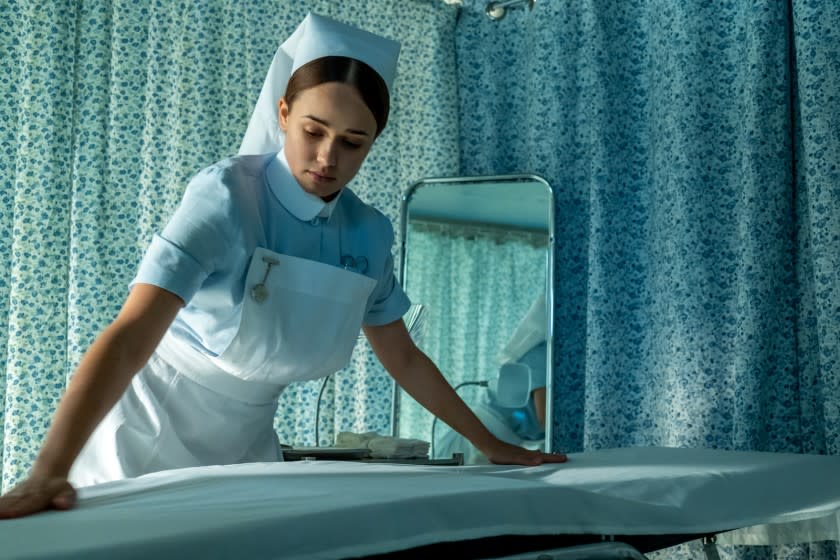Review: London goes dark, supernatural thriller 'The Power' goes dim

- Oops!Something went wrong.Please try again later.
Horror meets history in writer-director Corinna Faith’s “The Power,” a supernatural thriller set during the 1974 London blackouts. Rose Williams plays Val, a novice nurse who has encounters with the paranormal while working the night shift at a darkened hospital. But while Williams and Faith do a fine job of capturing the frustrating powerlessness of a low-wage-earning woman in a sexist and classist society, “The Power” never generates much in the way of shocks or excitement.
The film works best in its opening half-hour, as Val struggles to fit in at her new job. She annoys her boss by having an intelligent conversation with one of the doctors. She irritates her co-workers, who find her nerdy and clumsy — and who have heard rumors that years before she lied about a sexual assault. Plus she’s afraid of the dark, which makes working in the hospital’s inky shadows unnerving.
If “The Power” weren’t angling to be a horror film, it might be a decent drama. It’s set at a fascinating time in U.K. history, when the government and the labor movement were often at odds, causing disruptions to daily life; and Val is a unique character, quietly pushing back against atrophied institutions as well as her own past traumas and fears.
But as soon as the genre elements start creeping into the picture, “The Power” quickly dims. Rather than craftily building suspense and establishing a meaningful supernatural mythology, Faith throws a bunch of visual clichés onto the screen. As Val wanders through the wards she comes across old photographs with mysterious out-of-focus figures in the background, and notebooks filled with maniacal scribbles. She sees faces in the darkness and people whose bodies contort grotesquely.
All of these images are meant to point to the larger secret Val needs to uncover, but none of them are scary enough on their own to make the mystery compelling. Instead, the most intriguing part of “The Power” is Val herself, and her persistent inability to get anyone to take her or her warnings seriously.
In the end, this movie is more inclined toward the sober exploration of class- and gender-based discrimination than toward making the audience jump out of their seats. The message here is strong. The delivery is flat.
This story originally appeared in Los Angeles Times.

